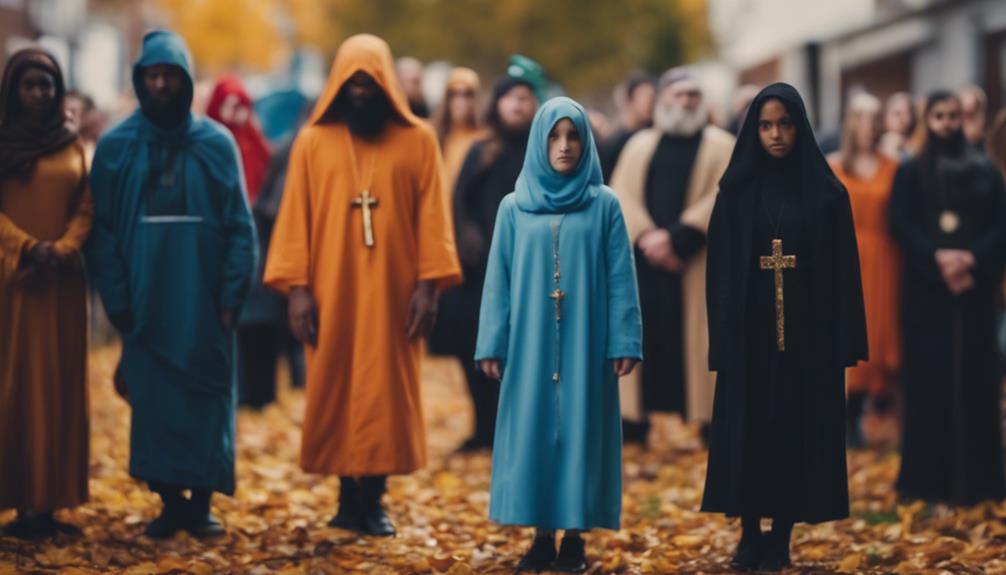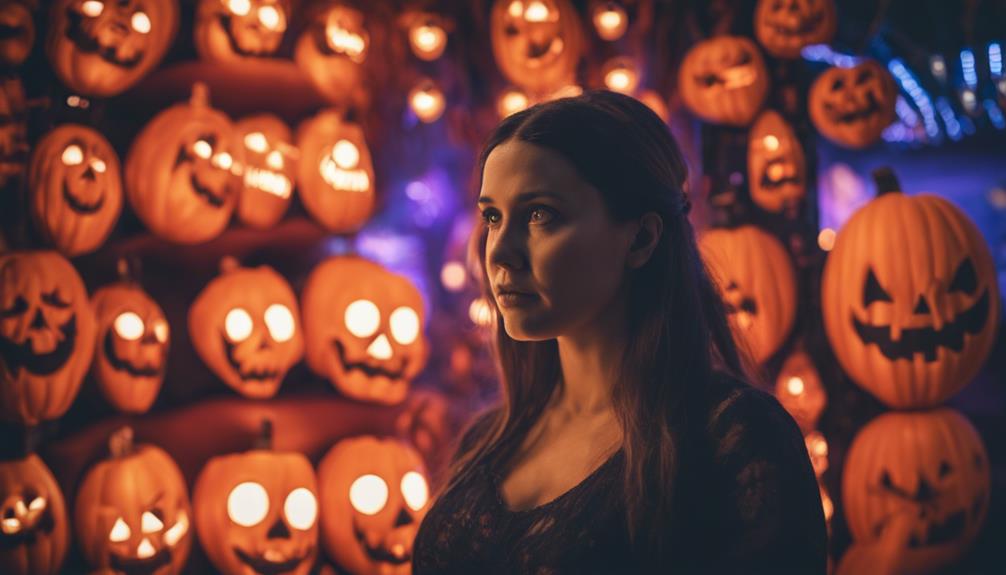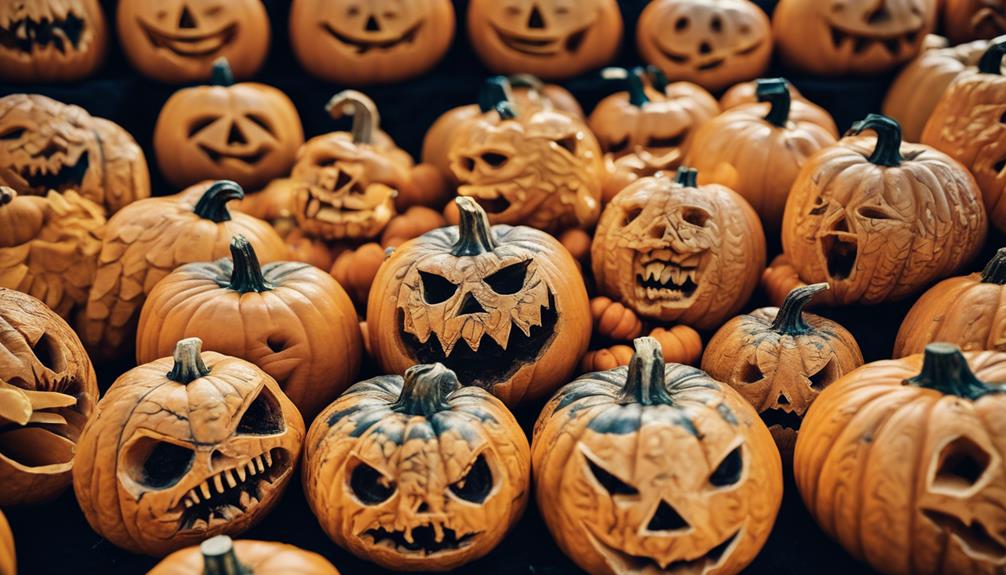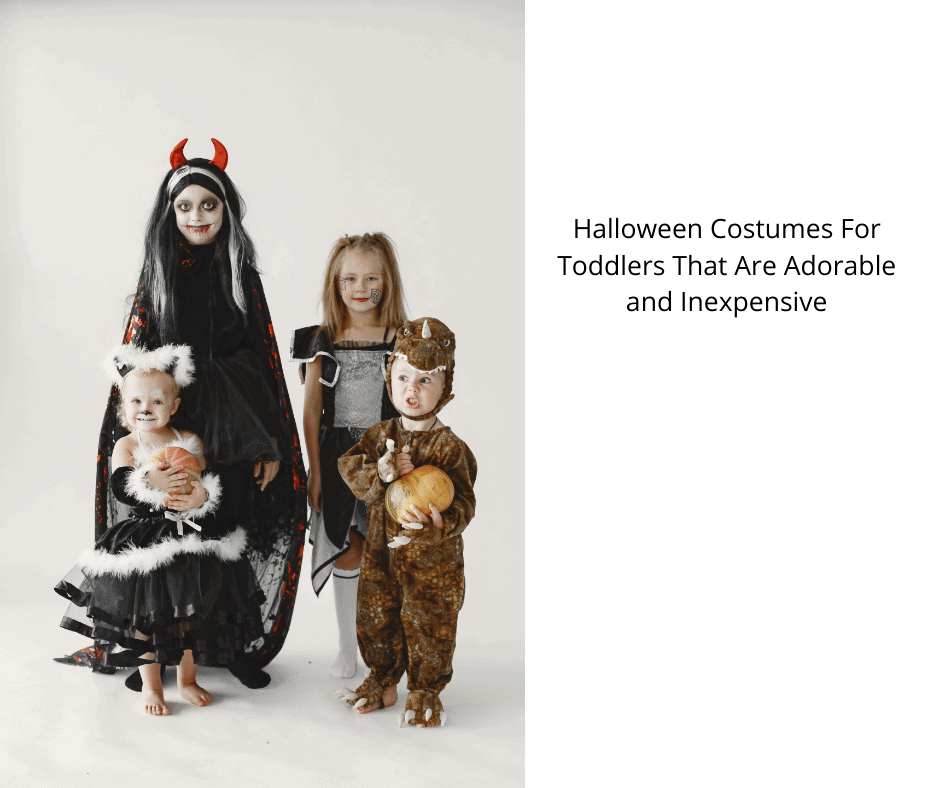Various religions, such as Orthodox Jews and Jehovah's Witnesses, avoid Halloween due to historical ties to pagan practices. Many branches of Christianity also steer clear because of perceived pagan connections. For these faiths, Halloween clashes with their beliefs and traditions. Understanding the historical, pagan, and religious factors shaping their perspectives sheds light on why they choose to abstain from Halloween celebrations. This insight unravels the intricate web of influences that guide their stance on this holiday.
Key Takeaways
- Halloween's pagan origins conflict with monotheistic beliefs.
- Some religions avoid Halloween due to historical ties to pagan practices.
- Religious groups abstain from Halloween due to perceived negative spiritual implications.
- Cultural and religious values clash with Halloween's associations.
- Different religious perspectives influence the decision not to celebrate Halloween.
Historical Perspectives on Halloween
How did Halloween originate as the Celtic festival Samhain, marking the end of the Celtic year and the beginning of winter?
The Catholic Church's influence on Halloween began when Pope Gregory III shifted All Saints Day to November 1, intending to Christianize the pagan festival.
This move intertwined the traditions of Samhain with Christian practices, paving the way for the evolution of Halloween.
Surprisingly, Orthodox Jews and some other religious groups don't celebrate Halloween due to its pagan origins and associations with Christian customs.
The historical background of Halloween reveals a fascinating blend of Celtic beliefs, Christian influences, and the subsequent adaptation of the holiday in different cultural contexts.
As Halloween made its way to America in the 19th century and became popular among Irish immigrants, its transformation from a Celtic festival to a widely celebrated holiday illustrates the complex interplay between various religious beliefs and cultural practices.
Pagan Influences on Religious Beliefs
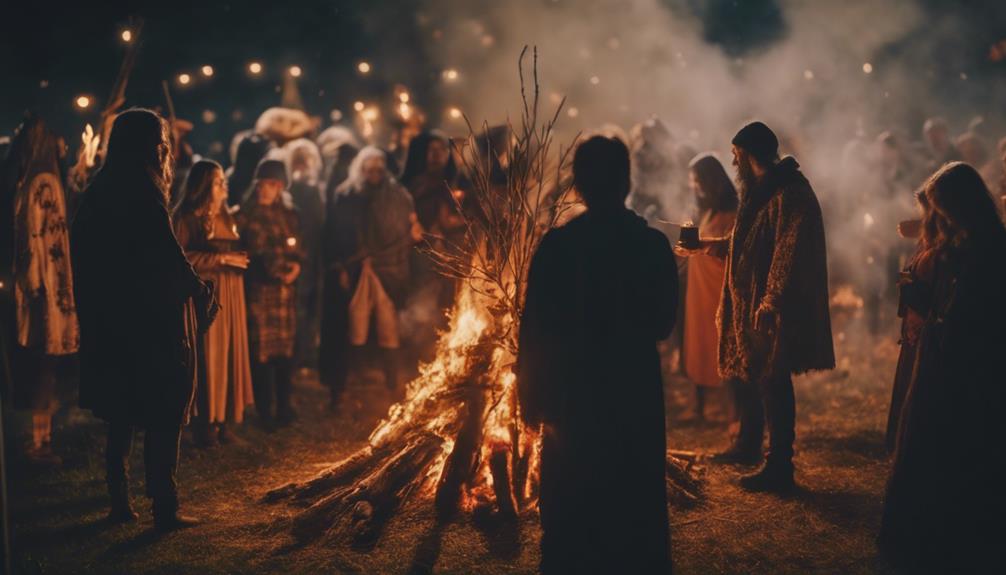
Pagan influences on religious beliefs have a significant impact on how certain groups view Halloween. The historical connections between pagan roots and religious practices are often a cause for concern among some denominations.
Understanding the origins of these influences can shed light on why some religions choose to avoid participating in Halloween celebrations.
Pagan Roots in Religions
Religious beliefs often reflect a deep-rooted aversion to Halloween due to its pagan influences, particularly stemming from ancient Celtic festivals like Samhain. Pagan traditions intertwined with Halloween, such as honoring the dead and marking the shift to winter, clash with certain religious perspectives.
The historical ties of Halloween to pagan rituals, superstitions, and occult practices can deter some religious groups from embracing the holiday. Many religions highlight the pagan origins of Halloween as a reason for their avoidance or prohibition within their faith.
Understanding the pagan roots in religions sheds light on why some choose to steer clear of Halloween celebrations. The influence of ancient Celtic festivals like Samhain on the modern-day observance of Halloween serves as a reminder of the diverse historical layers that shape our cultural practices.
For some religious individuals and groups, acknowledging these pagan roots plays a significant role in their decision to abstain from participating in Halloween festivities.
Impact on Beliefs
Frequently, the influence of pagan practices on beliefs shapes the avoidance of Halloween within certain religious communities. The pagan origins of Halloween, with its focus on superstitions and occult elements, often conflict with the monotheistic beliefs of various religions. The celebration's association with practices that go against these faiths leads to their reluctance to participate in Halloween festivities.
Instead, many religions prioritize their own festivals and religious holidays over Halloween, as they align more closely with their beliefs and values. This avoidance stems from the impact of pagan influences on religious beliefs, highlighting the importance of maintaining the purity of faith and adhering to traditions that are in harmony with their religious teachings.
Historical Connections Explained
The historical ties between Halloween and various belief systems reveal a rich tapestry of cultural exchanges and adaptations. Halloween finds its roots in the Celtic pagan festival of Samhain, a time when ancient religious practices intertwined with the changing seasons and beliefs about the spirit world.
The early Catholic Church strategically introduced Halloween as a means to Christianize the pagan festival, blending elements of both traditions. Even seemingly modern traditions like costume parties have deep-seated connections to ancient religious customs and beliefs. Dressing up during Halloween harkens back to practices aimed at warding off evil spirits, while the concept of trick-or-treating has its origins in rituals meant to appease the supernatural forces believed to roam the earth during this time.
The historical connections between Halloween and religion underscore the intricate interplay between pagan influences and religious traditions, shaping the holiday into the multifaceted celebration it's today.
Superstitions Surrounding Halloween
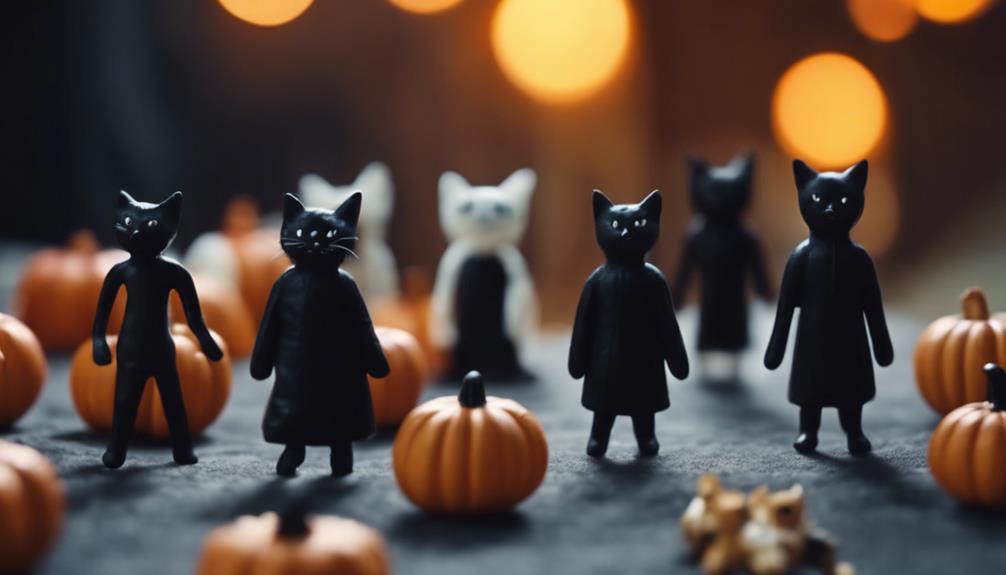
Steeped in folklore and tradition, Halloween harbors a plethora of superstitions that captivate minds and fuel imaginations. Many superstitions surrounding Halloween stem from fears of evil spirits and supernatural occurrences. These beliefs often lead to various rituals or practices aimed at warding off malevolent forces during this time of the year. Across different cultures and religious groups, the level of belief in these superstitions can vary greatly. Some view them as harmless fun, while others take them quite seriously, influencing their decisions regarding Halloween celebrations.
| Superstitions | Halloween | Religious |
|---|---|---|
| Ghosts | Associated with the holiday | Some religions avoid |
| Witches | Commonly linked to Halloween | Due to negative connotations |
| Occult Practices | Often feared during Halloween | Influence decisions regarding celebration |
These superstitions play a role in shaping perceptions of Halloween, affecting how individuals and religious communities choose to engage with the holiday.
Religious Considerations and Halloween
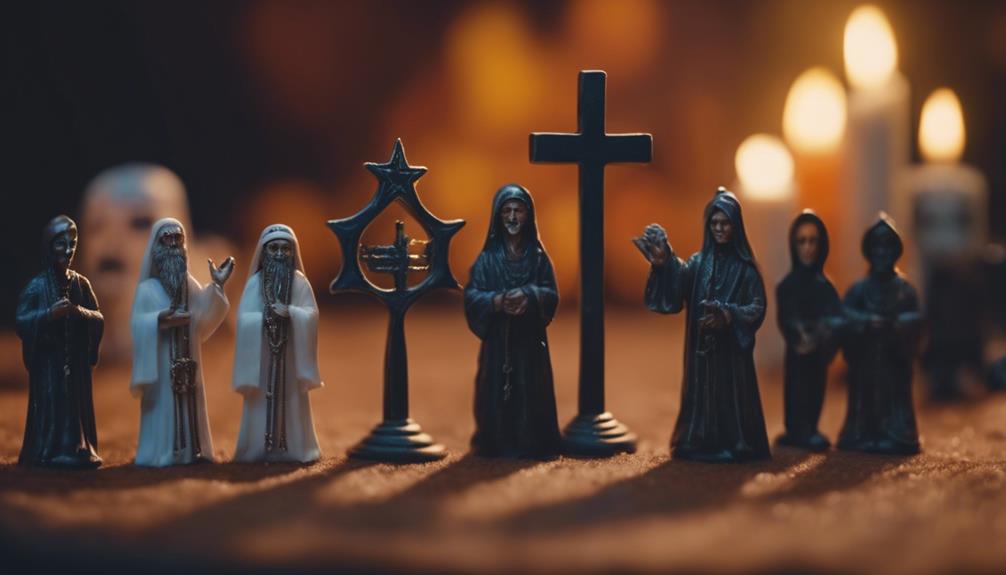
Considering the diverse religious perspectives on Halloween, the holiday's observance varies greatly among different faith traditions. Here are some key considerations regarding religious views on Halloween:
- Judaism: Orthodox Jews generally don't partake in Halloween festivities due to its non-Christian origins and associations with paganism.
- Jehovah's Witnesses: Members of this religious group also abstain from Halloween celebrations, viewing it as a holiday with pagan roots conflicting with their beliefs.
- Islam: In Islam, Halloween is often discouraged or forbidden as it's seen as a non-Islamic practice that goes against the teachings of the faith.
- Various Christian Denominations: While some Evangelical Christians may choose to avoid Halloween due to its perceived pagan connections, other Christian denominations have differing views, with some opting for alternative celebrations or focusing on their own religious holidays during this time.
Festivals Focused on by Religions
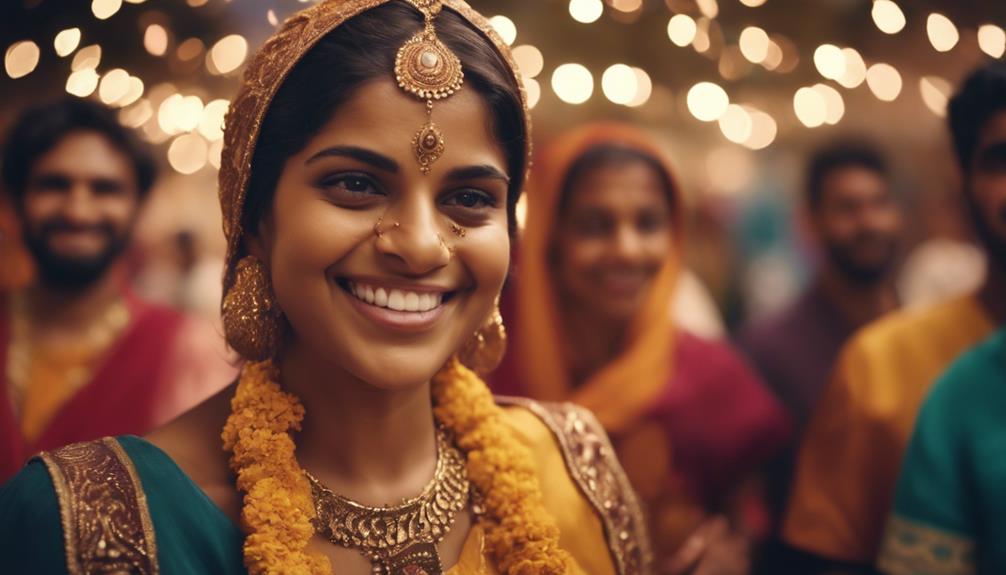
Festivals significant to various religions showcase diverse cultural traditions and spiritual practices during specific times of the year.
Jehovah's Witnesses prioritize worship and spiritual activities over holiday celebrations.
Orthodox Jews may choose alternative autumn-themed celebrations or focus on Jewish holidays rather than Halloween.
Muslims celebrate only two holidays annually: Eid al-Fitr and Eid al-Adha, emphasizing prayer and community gatherings.
Some Evangelical Christians observe Reformation Day or host fall festivals without Halloween themes, aligning with their religious beliefs.
Hindus mainly celebrate Diwali, a five-day festival of light symbolizing the victory of good over evil and knowledge over ignorance.
These festivals deeply resonate with the followers of each faith, offering a time for spiritual reflection, community engagement, and cultural celebrations that differ from the mainstream Halloween festivities.
Understanding the festivals celebrated by various religions provides insight into the rich tapestry of traditions and beliefs that shape different communities around the world.
Perspectives on Halloween Celebrations
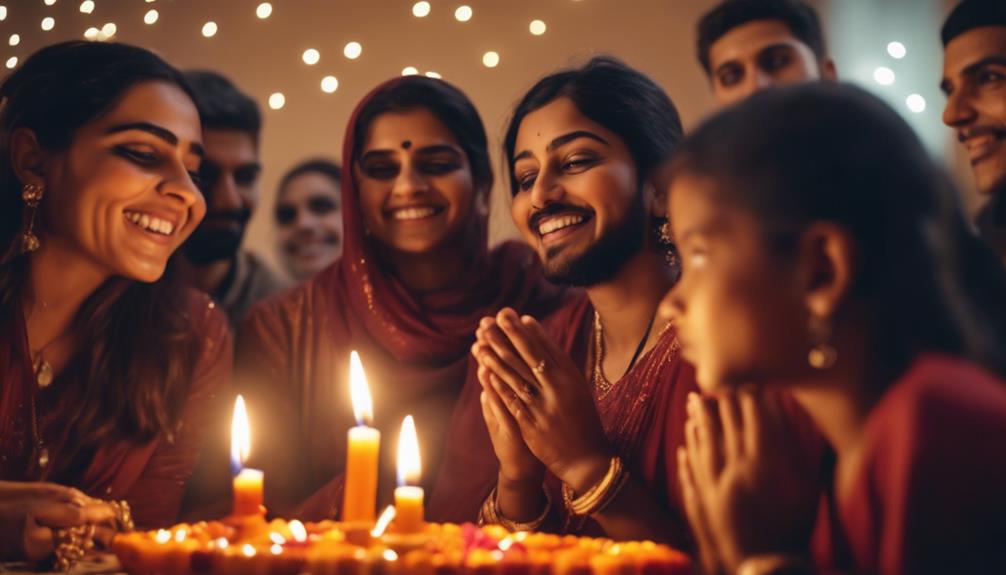
Some religious groups hold reservations about Halloween festivities due to their perceived pagan and non-Christian origins. When it comes to perspectives on Halloween celebrations among religious people, several viewpoints exist:
- Conflicting Values: Some religious individuals view Halloween as contradictory to their beliefs due to its historical ties to paganism and non-Christian practices, leading them to avoid participating in its celebrations.
- Negative Associations: Certain religious communities associate Halloween with negative spirits, devil worship, and other elements that go against their teachings, causing them to steer clear of the holiday.
- Diverse Views: Within different religious groups, there are varying perspectives on Halloween, with some choosing to partake in alternative autumn-themed festivities or focusing on their own religious holidays instead.
- Cultural Variances: Halloween's acceptance varies across cultures and religions, resulting in a range of practices and attitudes towards the holiday among different religious communities.
Frequently Asked Questions
Why Do Some Religions Not Celebrate Halloween?
Some religions refrain from celebrating Halloween due to its origins and associations with superstitions. Concerns about superstition, witches, and occult practices linked to Halloween are key reasons for avoidance.
These religions prioritize their own festivals and beliefs over participating in Halloween activities. Halloween is viewed as not aligned with monotheistic or specific religious beliefs by certain groups, who also emphasize the pagan origins and the focus on other significant religious holidays.
Does It Say in the Bible That You Should Not Celebrate Halloween?
In the Bible, there's no direct mention of Halloween. However, some Christians choose not to celebrate it due to its pagan origins and associations with darkness.
The decision to participate in Halloween festivities is a personal one, guided by individual interpretations of Christian values. Some churches offer alternative fall festivals as a more wholesome option.
Ultimately, whether or not to celebrate Halloween is influenced by personal beliefs and convictions.
Why Do Jehovah's Witnesses Not Celebrate Halloween?
Jehovah's Witnesses don't celebrate Halloween because they consider it a pagan holiday that conflicts with their religious beliefs. They believe Halloween's origins and customs are tied to idolatry and pagan practices.
Instead, they focus on worship and spiritual activities that align with their faith. By abstaining from Halloween celebrations, Jehovah's Witnesses uphold their commitment to their religious teachings and values.
Is There a Religious Reason Behind Halloween?
There's indeed a religious reason behind Halloween. It originated from the Celtic festival of Samhain, marking the end of the harvest season and the beginning of winter.
Later Christianized, Halloween became All Hallows' Eve, tied to All Saints' Day. The practice of pumpkin carving symbolized warding off evil spirits.
While some religious groups view Halloween negatively, its roots intertwine with both pagan and Christian traditions.
Conclusion
To sum up, it's intriguing to note that while many religions don't officially celebrate Halloween, there are underlying connections that have influenced beliefs and traditions over time.
Despite the superstitions and debates surrounding the holiday, the diverse perspectives on Halloween celebrations showcase the complex interplay between history, culture, and religion.
So, next time you wonder why some religions don't participate in Halloween festivities, remember that the answers may not be as black and white as they seem.
